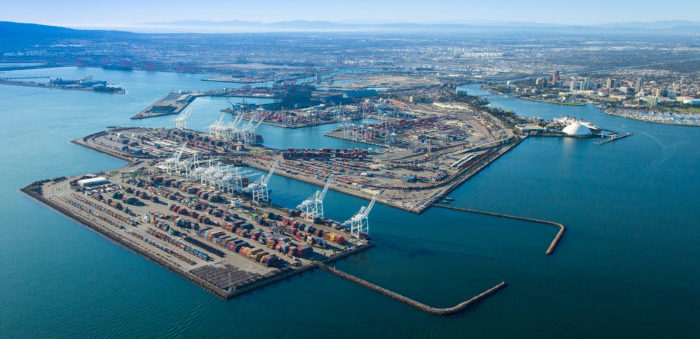The Port of Long Beach’s Board of Harbor Commissioners approved the Pier B On-Dock Rail Support Facility, greenlighting a project that will move cargo faster, with fewer environmental impacts. The project is part of the port’s plan to stay competitive and minimize truck trips generated by anticipated cargo growth.
“Moving more cargo by rail to and from the Port reduces air pollution and makes operations more efficient,” explained Harbor Commission President Lou Anne Bynum.
The next steps include the Board’s consideration of a baseline budget for the project, after preliminary designs are completed over the coming months.
“The Clean Air Action Plan calls for increased use of on-dock rail, and we have a goal of raising our on-dock volumes to at least 35% of our shipments,” Port of Long Beach Executive Director Mario Cordero said. “It’s crucial that we build this facility to hit these environmental and business goals.”
The proposed development would shift more cargo to “on-dock rail,” which places containers directly on trains at marine terminals. Currently, the ability to build long trains is limited due to the lack of adequate yard tracks and the configuration of mainline tracks. On-dock rail usage in the Port was 24% in 2017.
The Pier B facility would change this by providing track space to join together sections of trains assembled at terminals. No cargo trucks would visit the facility, enhancing the environmental benefits of pushing more cargo to rail transportation. A one-mile-long train can take as many as 750 trucks off the roadways.
Additionally, the rail facility would be operated by Pacific Harbor Line, a switching railroad that has converted its fleet to clean-diesel locomotives that reduce air pollution and save fuel.
Throughout last year, the Port conducted extensive outreach on the project’s Environmental Impact Report, analyzing the environmental impacts of the planned project, and the mitigation measures that would be used to address those impacts. The draft EIR was released in December 2016. The Port held a series of public meetings and solicited comments from stakeholders to revise the report.






























































